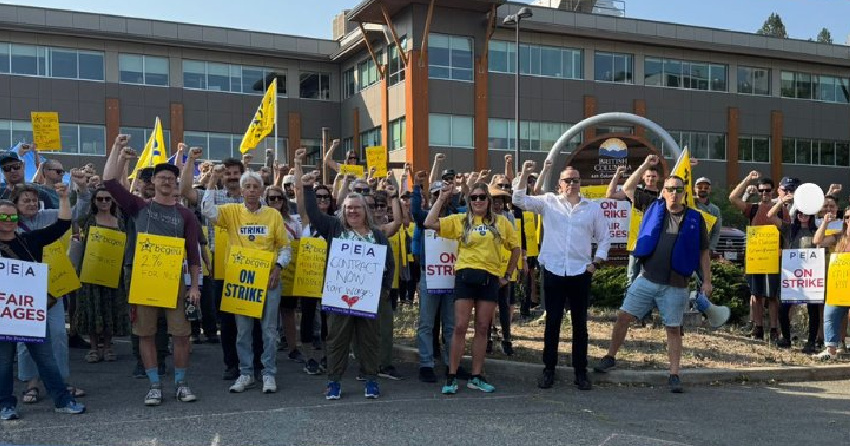The BC General Employees’ Union (BGEU) is taking the next steps in escalating job strike action, which will impact workers of the Liquor Distribution Branch (LDB).
On Friday, the union announced an overtime ban that will cover more than 1,700 LDB workers at the head office in Burnaby and distribution centres in Delta, Richmond and Kamloops.
This brings the total number of public service workers who are on strike to over 6,000.
This latest escalation builds off the expansion of picket lines to eight new cities, which was announced on Monday.
.png)
“Public service workers should not be asked to shoulder the affordability crisis while government counts on their labour to generate record liquor revenues,” said Paul Finch, BCGEU president and chair of the public service bargaining committee.
“If government won’t treat workers fairly, they shouldn’t expect business as usual.”
Friday marks 12 days of job action and the BCGEU says the provincial government has yet to return to the bargaining table with an improved wage offer.
The union claimed the Ministry of Finance is instead publicly mischaracterizing the union’’s proposal as a demand of 15.75%. However, the union said it is proposing a 8.25% increase over two years.
In an interview with NowMedia, Finch accused the government of “refusing to negotiate.”

A statement to NowMedia from the government said the union’s additional compensation proposals are equivalent to 7.5% general wage increase and when those are included in the union’s overall proposal, it totals a 15.75% increase, which would incur an ongoing cost of $437 million.
In a statement issued Friday, the union reiterated that it was proposing a general wage increase of 4% in the first year and 4.25% in the second.
The BCGEU said this “fair and reasonable” proposal is meant to close the gap created by years of wage erosion which has left public service workers earning less than BC’s average weekly wage and falling further behind inflation.
The union said the provincial government’s latest offer of 1.5% in year one and 2% in year two fails to meet workers’ needs.
“Undervaluing the workers who keep this province running not only harms families, it threatens the long-term sustainability of the public services all British Columbians rely on,” said Finch.
“Our members are prepared to continue job action as long as it takes to secure a fair deal. The next move belongs to government.”








.png)









